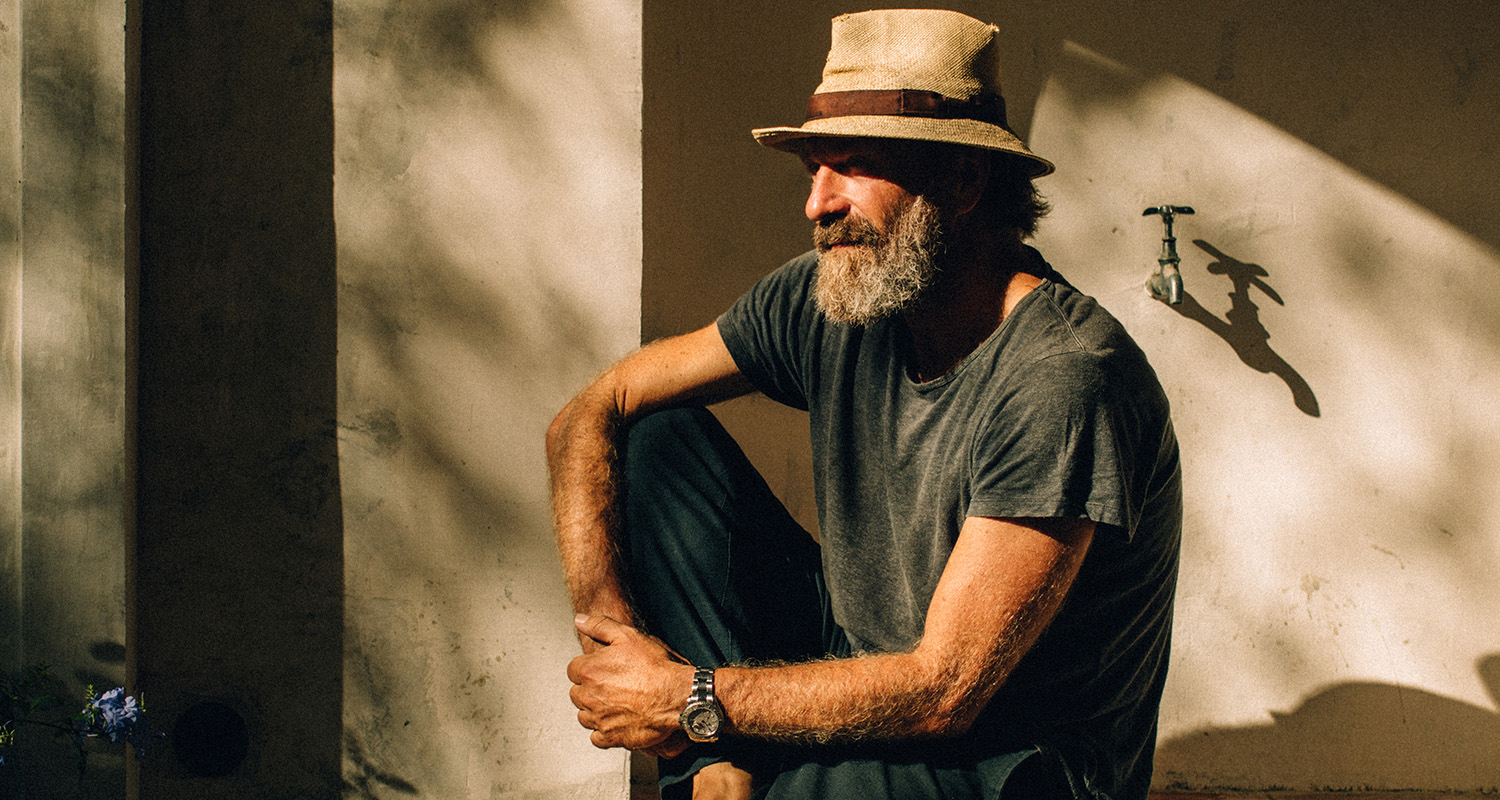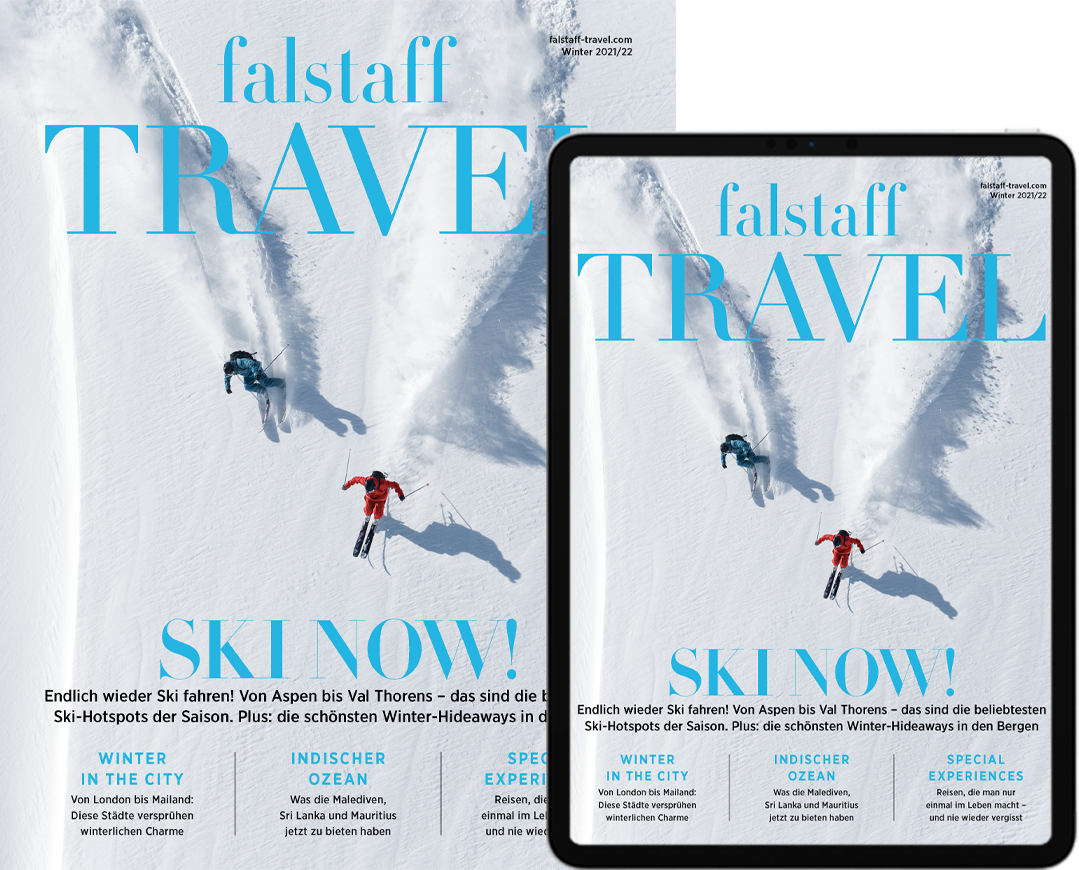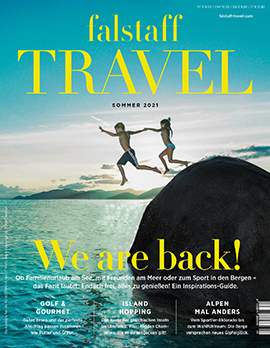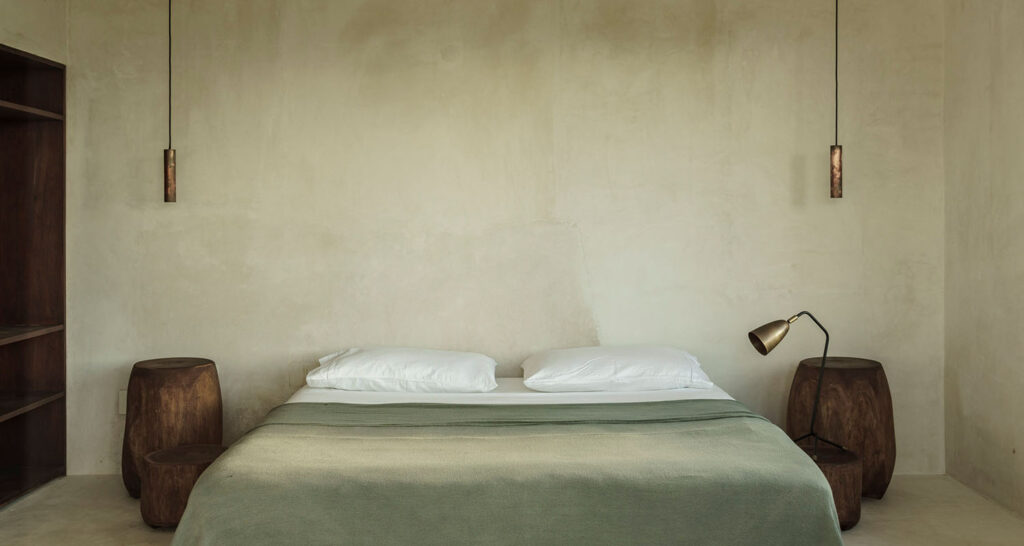
The visionary: Claus Sendlinger
Travel expert, mastermind and founder of Design Hotels Claus Sendlinger in a Falstaff TRAVEL interview about the future of the tourism industry.
30 December 2021
At the beginning of the 90s, he founded the umbrella brand Design Hotels, at a time when everyone said: "This will never work." They were wrong, and Claus Sendlinger demonstrated what Steve Jobs later defined as: "Think different". The travel expert still thinks differently today. A conversation about how we will travel in the future - and why Sendlinger sees himself as a lab rat.
Mr Sendlinger, for 30 years you have been a thought leader in an industry that is coming under increasing pressure - not least due to the pandemic and the call for greater sustainability. Where is the journey heading?
During the lockdown, everyone did a life check: Is this it - or is there more to it? We need to rethink the world. At the moment, the systems are repaired with a sticking plaster, no one has the courage to set everything up again. 20 years ago, I already tried to bring sustainability into the Design Hotels, and I didn't get away with it.
Why?
The hotels, for whom it was a matter of course to act sustainably, did not want to make any profit from it at all. And the others wanted to talk about what should be done without doing it themselves. And then, in our world, it's always about certain seals of quality, predicates, approvals. If you go deeper into the subject, you can't take it seriously.
When did it click for you personally?
About five years ago, when I left Design Hotels and moved to Ibiza to live on a farm as a single father - the children were five and nine years old. That's when I got involved with regenerative farming, and with unsexy questions such as "Where does the rubbish go?" It was grounding for all of us. Festivals like Burning Man, Summit at Sea, and Wonderfruit shaped me, as did various architecture and art biennials. It was in this intersection that the idea for my current project, Slow, matured. The pandemic was a turbocharger for the need to want to break out. I think we are all ready for something new.
What makes "Slow" different?
With the Design Hotels I started almost 30 years ago, I wanted to create authentic and unique places. This was ultimately taken over by the large groups. "Slow" should not become a new sustainable hotel group. The places we work in are simply too different for that: "La Granja", the farm in Ibiza; an inner-city campus in Berlin that redefines working; a treehouse in Mexico and a kind of retreat in Lisbon. For me, "slow" is the umbrella term for the mindset of a new avant-garde with a holistic lifestyle.
©Claus Brechenmacher & Reiner Baumann
How can we imagine this in concrete terms?
We are currently building a collective on an area near Lisbon: a 20-hectare biodynamic farm with fruit trees, vegetable cultivation and medicinal plants. This includes 50 houses, which will be sold after completion. There are also three restaurants and 48 rooms, each between 25 and 100 square meters. There are simple accommodations for "artists in residence" among them, and places for arts and crafts and education. I believe that the school system as we know it will change dramatically for a certain class of people in the next five years. Kids will spend less time in school and instead learn other things - and do it a lot more efficiently.
According to the motto "Life is a journey"?
Ideally, there would be ten of these community projects - one or two on each continent. And a new ownership or sharing model, where we travel back and forth between places with our friends. We want to develop a place where life works differently than before, and where in a new nomadism all needs are realized through hospitality. I am always my own lab rat. I already live like this and I can say: I love it! When we share the idea, we hear, "Oh, wow, when will this be ready?" I'm convinced - as I was when I started Design Hotels - that this will be the future model of living. Basically, it's always a question of values.
What are these values?
Slow does not mean that we are extremely slow. But we are extremely critical in the topics we deal with. Our tagline "'Cultivating arts, crops and inner gardens" is not a vacation theme - it's a way of life. In these three chapters of the experience, you put everything you want to offer in good hospitality: arts, food and personal development. This flows smoothly from the journey to yourself to how to treat your staff when building a team.
Please tell us more about it!
We are dealing with the part that religions have taken over in the past centuries, but have increasingly lost in the end. Today we are more often at yoga than in church. Architects design places for this inner retreat, with everything that goes with it. And so that the whole thing doesn't become too monastic, the arts are also part of it.
What's missing are the "crops", the plants ...
My partner studied nutritional sciences and naturopathy, which means the whole topic from nutrition to biohacking is a central one for us. In our household you won't find sugar, dairy or gluten. That's why the goal of "La Granja", the farm in Ibiza, was to successfully run an organic farm from the beginning and to involve the guests in the work. If everyone knows what they are eating and can get hold of fresh produce, then that's half the battle.
You stand for innovation. What does it take for that?
When it comes to the big companies to do something new, the one who brings the safest number always wins. That's not how innovation happens - ever! Innovation has something to do with courage and not with what someone has done before. Even we don't yet know how what we want to offer will work. Just recently we said we could be one size sexier. But that's kind of difficult with carrots.
What is particularly important to you personally?
I hope that we don't fall back into this totally crazy jetting around the world. That's where the issue of sustainability starts: with oneself. I try to be very conscious of it in my life. Here in Lisbon I don't need a car, I either walk, take an Uber or a Bolt. Also: taking more time. I drove from Germany to Portugal for two months in the summer with the kids in the car. And we went to Sicily for a month. So you get a different relationship to time and can also remember things differently; much clearer and more detailed. The way holidays used to be: When I was a kid, we went with my parents to the area north of Rimini. Those were the best weeks of the year for me!
Claus Sendlinger
- Origin
Claus Sendlinger was born in Augsburg, Germany in 1963 and started his career in PR and events with a focus on hotels and clubs.
- Design Hotels
At the age of 30, the visionary founded Sendlinger Design Hotels as an umbrella brand for independent, authentic hotels.
- Success story
Today, the group has 300 hotels in around 60 countries - time for the "placemaker" to devote himself to new tasks: After more than 20 years, he steps down as CEO and today creates new places of encounter and harmony with a collective of creative people.
- New tasks
For over ten years, universal designer Sendlinger has been living and working as a global nomad in a management position.
- Next project
In Berlin, directly on the Spree, the "Slow" project "Marina" is opening: a creative campus for wellbeing, culture and sustainability.
The interview was conducted by Heidi Rietsch.

This article appeared in the Falstaff TRAVEL issue Winter 2021/22.


